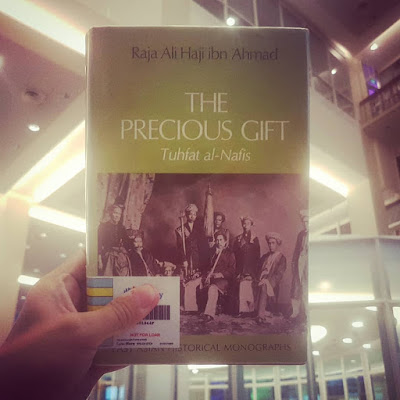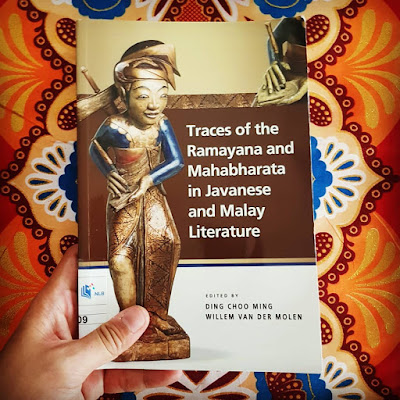The Precious Gift/Tuhfat al Nafis, by Raja Ali Haji ibn Ahmad
Liaw Yock Fang calls this 1885 history is often regarded the second greatest work of classical Malay lit after Sulalatus Salatin/Sejarah Melayu/The Malay Annals. It actually begins with a summary of all the legendary narratives of Alexander the Great and Sang Nila Utama, but the bulk of it takes place in the colonial age, describing how the courtly intrigues of the Sultanates of Johor, Riau and Siak weathered Dutch and British colonialism.
It's kind of difficult to follow with all the different dynasties and personalities—though there is a central Bugis band of brothers, and this translation contains some family trees—still, it's clearly a more modern work than Sulalatus Salatin: it cites dates and sources; political roles of women are mentioned a little more—and sadly, almost nothing miraculous happens after the early bits. (The story of Sultan Mahmud getting his wife pregnant by cumming on a floormat while looking at his fairy consort, and ordering her to eat the spunk. His assassination leads to the disintegration of stable Malay rule in the region, btw.)
The ending is oddly poignant for Singaporeans: our island, lost to the Brits, is casually mentioned as a rising port city where royals and intellectuals meet and negotiate and even become Freemasons, as in the case of Mahmud IV of Riau. I think Raja Haji Ali wrote some of this work here, in fact. Here's a story of a people from myth to modernity, ending with foreign domination, and a family on the brink of irrelevance. Maybe someone should make a TV series so I can figure out exactly who did what.
Oh, and for my purposes: lots of useful details of war and rituals which I can use in my historical writing. :)



Comments
Post a Comment